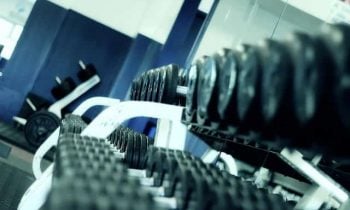Men and women are at risk of suffering from osteoporosis, a disease wherein the bones lose mineral density until they become weak and brittle hence they are prone to fractures. Osteoporosis is a painless bone disease, but you can suffer from pain due to fractures.
Other than the increased risk of suffering fractures, you can also suffer from hunched posture due to osteoporosis because the spine is not strong enough to support your body weight.
Osteoporosis is more common in older adults, but there are ways to prevent it from happening to you.
Who Suffers From Osteoporosis?
Osteoporosis commonly affects older adults, but younger adults can also suffer from it due to several lifestyle factors.
Throughout your life, your bones undergo a remodeling process and in about every 10 years you grow new bones. Old bone tissue is broken down by cells called osteoclasts so new bones can develop and replace the resorbed bones. During the resorption of bones minerals, such as calcium and magnesium are released into the blood stream.
As you age, the formation of new bones slows down. If the rate of bone resorption surpasses the rate of new bone formation, you become at risk of suffering from osteoporosis because of the ongoing loss of bone tissue and mineral density.
Moreover, your body will utilize calcium stored in your bones if it does not get enough calcium from your diet.
Other factors that contribute to increased risk of suffering from osteoporosis include:
• Low testosterone levels in men
• Low testosterone levels in women
• Lack of vitamin D
• Inactive Lifestyle
• Thyroid Disorders
• Smoking
• Excessive Intake of Alcohol
• Medications (Corticosteroids)
Contrary to what many people believe, men can also suffer from osteoporosis though women tend to suffer from it at an earlier age due to early onset of menopause.
How to Prevent Osteoporosis When You Are Over 50
Your bones help support your body weight and your movements that is why you need to keep them strong and healthy especially at this age. Prevent bone loss and protect your bones from osteoporosis with these tips:
1. Exercise regularly
Just like your muscles, you can help stimulate your bones to strengthen itself through regular exercise. Weight bearing exercises or exercises that require you to work against gravity are the best types of exercise for your bones. Examples are brisk walking, jogging, climbing stairs, and weight training.
Push yourself to exercise at least 30 minutes per day. If you suffer from any type of illness, check with your doctor first before starting an exercise program.
2. Eat a healthy diet rich in calcium
Eat a healthy diet which mainly consists of fruits and vegetables. Most importantly, you should include calcium-rich foods, such as milk, soymilk, yogurt, kale, and sardines. Older adults need an intake of 1,000 to 1,200 milligrams of calcium per day. If you do not get enough calcium from your diet, ask your doctor if intake of calcium supplement is an option for you.
3. Take calcium supplement
You can buy calcium supplements in drug stores without your doctors’ prescription. However, you should make sure first if it is really necessary for you to take them because excessive calcium intake can have adverse effects on your health.
When taking calcium supplement, experts recommend that you take not more than 500 milligrams at once because calcium is best absorbed in low doses.
4. Increase vitamin D intake
Another key nutrient for healthy and strong bones is vitamin D. This nutrient is responsible for the proper absorption of calcium into your body. High calcium intake will be ineffective if your body does not get enough vitamin D.
Exposure to sunlight is your best source of vitamin D. You can also get it from foods, such as oily fish, egg yolks, and red meat. Vitamin D supplements are also available, but doctors often recommend supplements containing both calcium and vitamin D.
5. Get rid of unhealthy habits
Smoking, excessive alcohol intake, and too much stress can contribute to poor bone health. Along with regular exercise and increased intake of calcium and vitamin D you need to control these unhealthy habits if you want to keep your bones strong and healthy.
An active and healthy lifestyle combined with a diet high in calcium, magnesium and vitamin D is best in preventing osteoporosis while you are younger, but it is never too late to start taking care of your bones at age 50 and beyond.


 GYM workout
GYM workout Caloric Intake for Over 50s
Caloric Intake for Over 50s Vitamin D for Over 50
Vitamin D for Over 50 Magnesium for Over 50
Magnesium for Over 50 Bodyweight exercises
Bodyweight exercises